It’s one of the most uncomfortable feelings you can deal with. No matter what you do, you just can’t stop feeling cold. Maybe it’s icy fingers, maybe it’s cold prickly feet. As it turns out, there are many reasons why your extremities may constantly feel like they’re stuck in the winter months. Here are 15 reasons for why you’re always cold.
1. Anemia
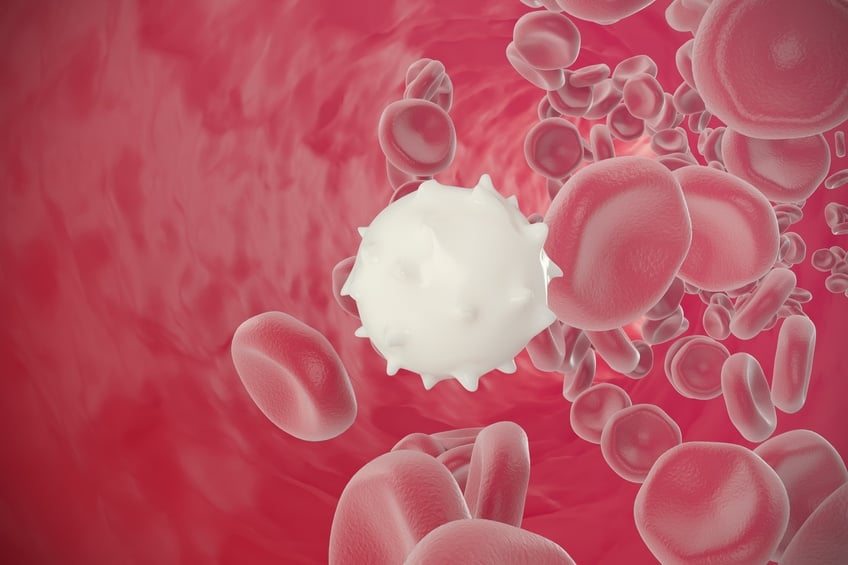
Red and white blood cells | iStock.com/Rost-9D
WebMD explains anemia occurs when you don’t have enough red blood cells to transport the oxygen your body needs. “It will leave you tired, weak, dizzy, and short of breath,” they say. “It can also make you cold, especially your hands and feet. Your doctor will find the cause and tell you if you need changes in your diet, supplements, or another treatment.”
2. Anorexia

Woman stepping on a scale | FotoCuisinette/iStock/Getty Images
You may not think cutting calories out of your diet can have such a profound impact on your body temperature. In fact, cutting fat and certain essentials out of your diet — more on those in just a second — can leave you feeling cold. And if you’re drastically cutting calories by withholding from eating, you’ll likely be left with a serious case of the chills.
3. A lack of iron
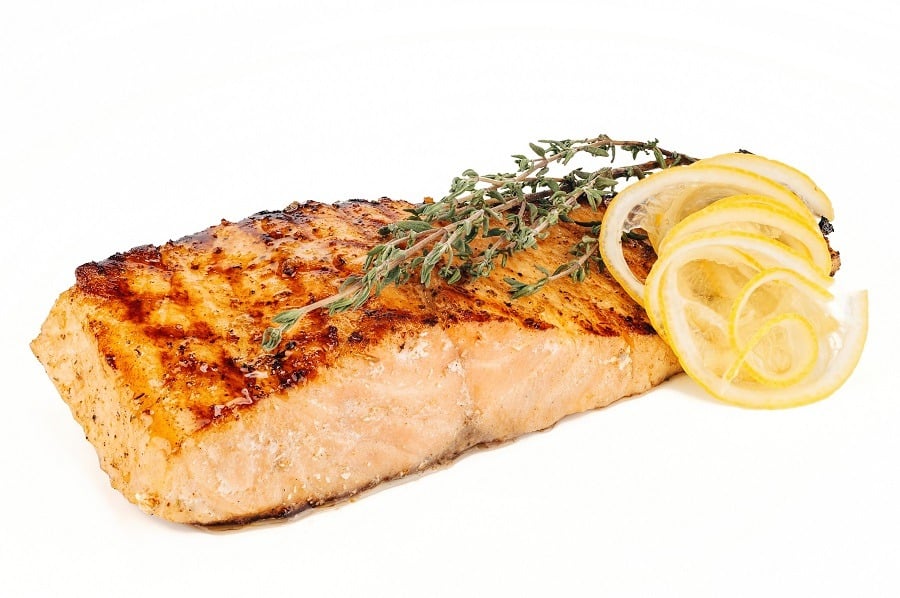
Fish fillet | Alexkladoff/iStock/Getty Images
This condition can go hand-in-hand with anemia. If you aren’t getting enough iron in your diet, your blood can’t carry it to the rest of the body. “Coldness in extremities—hands and feet—is most pronounced, because the body is smart, so it diverts blood to vital organs like the heart and brain first,” registered dietitian nutritionist Alyssa Tucci, MS, tells Reader’s Digest. Getting enough meat and fish in your diet can help alieve those cold feelings.
4. A lack of vitamin B12

Multivitamins | Valentina_G/iStock/Getty Images
Lacking iron isn’t the only deficiency that can leave you feeling cold. In fact, vitamin B12 deficiency has similar symptoms. “Like iron, most B12-rich foods are animal products, so vegetarians might have a tough time getting enough,” Reader’s Digest says of this nutrient, which can be found in eggs, cheese, and yogurt.
5. Dehydration

Drinking water | seb_ra/iStock/Getty Images
Tucci goes on to tell Reader’s Digest drinking water helps blood circulation. So if you’re getting enough nutrients and still have cold feelings in your hands and feet, drinking more water can help. Reader’s Digest recommends drinking half your body weight in fluid ounces.
6. Hypothyroidism
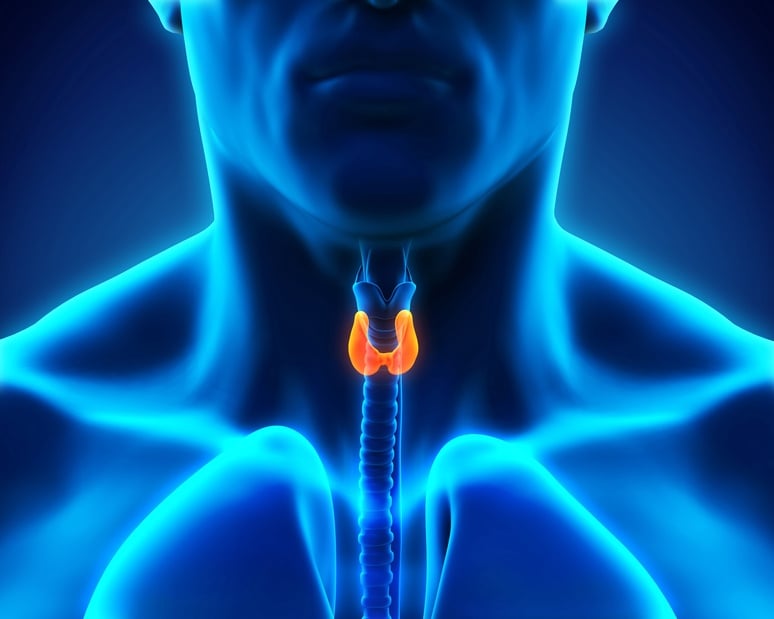
Illustration of the thyroid gland | iStock.com/Nerthuz
When your thyroid doesn’t produce enough hormones, you can suffer from all sorts of problems. One of which is — surprise, surprise — having cold extremities. ” It can make you overly sensitive to cold,” WebMD says. “You also may have aching joints, constipation, dry skin, and weight gain.” This condition is also quite sneaky in that it can take years before symptoms occur.
7. The flu

A man with a fever takes his temperature| iStock.com/IPGGutenbergUKLtd
We’ve all been there. You suddenly become hot to the touch, yet you can’t stop shivering. That perpetual cold feeling is just one of the many symptoms associated with getting the flu. “You can get a high fever and chills along with headache, muscle ache, cough, and weakness,” WebMD summarizes. “It can be serious, especially for children and older adults.”
8. Certain medications

Medication on a table | DedMityay/iStock/Getty Images
“Some drugs may make you feel colder as a side effect,” WebMD tells us, pointing to beta-blockers one medication this can commonly happen with. In this case, it’s important to talk to your doctor if you’re experiencing these symptoms while on certain medications.
9. Drinking too much alcohol

Toasting with beer | Kzenon/iStock/Getty Images
We aren’t just talking about your beer being chilled here. “It may seem to warm you up at first because it makes your blood flood the widened blood vessels just under the skin. But your temperature will drop as your body draws blood away from your core to warm the surface of your skin,” WebMD says. They also point out that alcohol inhibits brain function, and makes it less able to properly regulate body temperature.
10. A lack of sleep

Experiencing trouble sleeping? | Photodjo/iStock/Getty Images
Reader’s Digest admits there are mixed results in research connecting fatigue and body temperature. They do point out, however, that since body temperature typically drops at night when you’re sleeping, staying up late and being sleep-deprived can mess with your body’s rhythm and cause you to feel cold.
11. Raynaud’s syndrome phenomenon

Adult hand with Raynaud’s syndrome phenomenon | Barb Elkin/ iStock/ Getty Images
In more rare cases, someone suffering from constant cold may also have Raynaud’s syndrome phenomenon, which causes arterial spasms in the hands, feet, and even the face. “When exposed to cold, the spasm makes circulation to those areas worse, and they tend to feel colder,” Margarita Rohr, MD, tells Reader’s Digest.
12. Type II diabetes
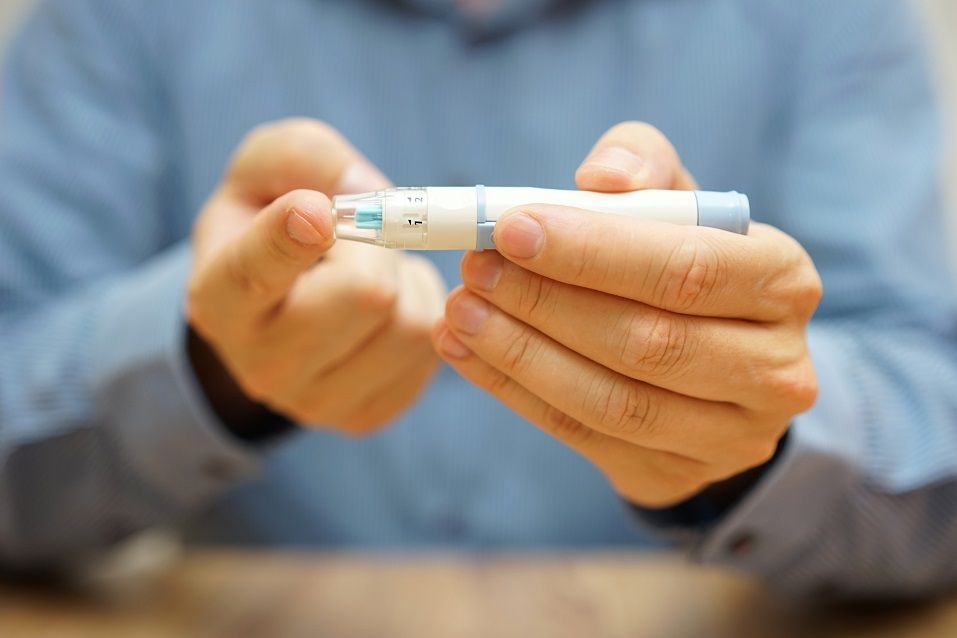
Man measuring his blood glucose levels for diabetes | iStock.com/BernardaSv
Diabetes is linked to anemia and poor blood circulation, which can, in turn, leave you feeling chilly. “A warning sign for this could be if your feet feel cold but aren’t cold to the touch,” AARP tells us. The cold feeling in your hands and feet can manifest into a numb, tingling, or even painful sensation.
13. Kidney disease
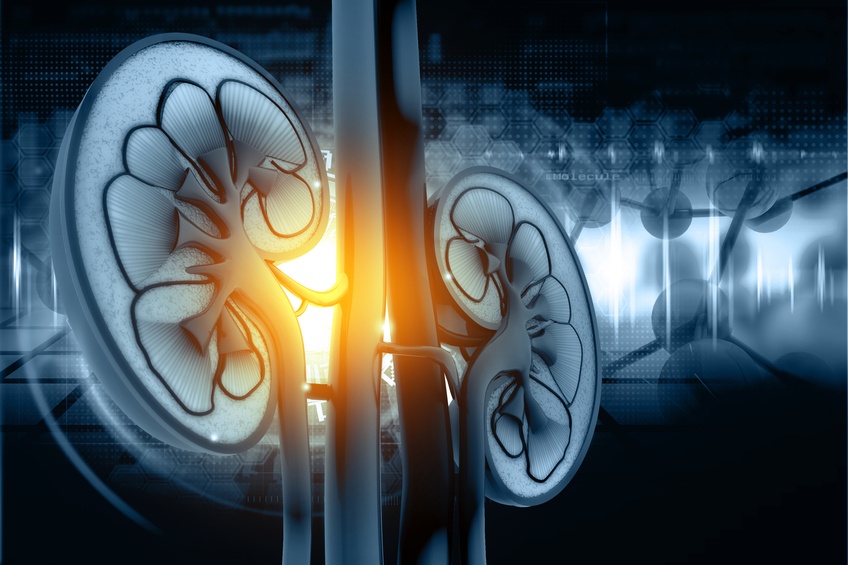
Human kidney cross sections | iStock.com/HYWARDS
Both diabetes and high blood pressure can wreak havoc on your kidneys, WebMD says. “Waste may build up to dangerous levels because your kidneys do a poor job of filtering your blood. This can lower body temperature and cause other problems,” they explain.
14. Peripheral Artery disease
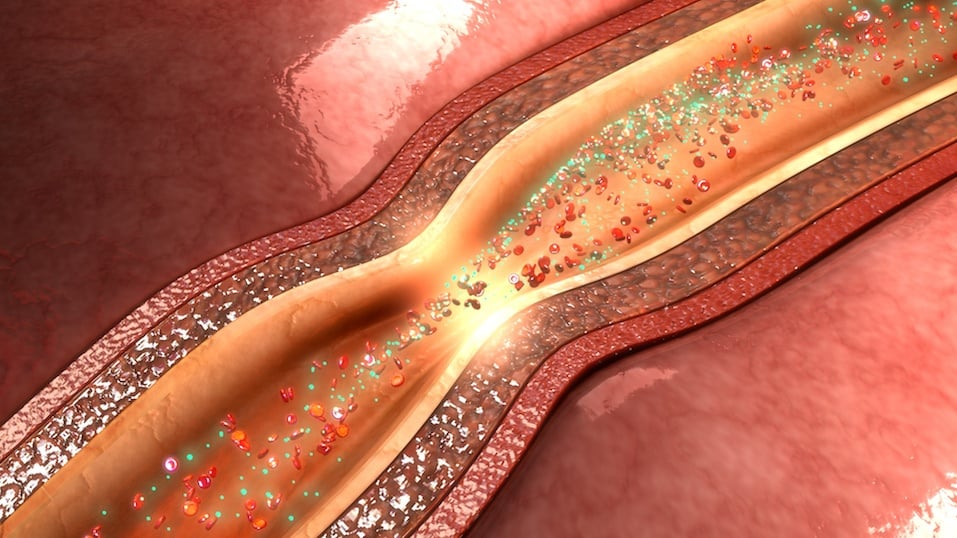
Coronary artery | 7activestudio/Getty Images
This condition occurs when your arteries are too full of plaque to allow blood to properly flow through your body. This can cause a cold feeling so profound it can border on pain. “If one leg is much colder than the other, especially if it’s also painful, numb, or weak, it could be a sign of the disease,” WebMD says.
15. Peripheral neuropathy

Palms | Casarsa/iStock/Getty Images
If you’ve experienced an accident that leaves you with nerve damage, this condition can occur — and drive your bodily thermometer bananas. “If your feet feel cold but aren’t cold to the touch, it could be a sign of this condition,” WebMD says. It often starts at the toes and moves up the leg. It happens when an injury or a medical condition damages your nerves.”
Check out The Cheat Sheet on Facebook!
Source: Read Full Article
